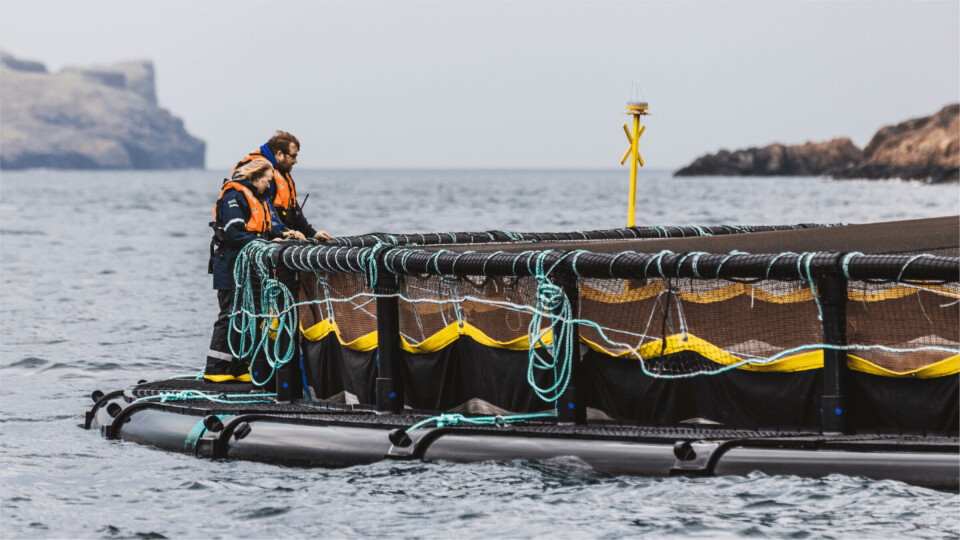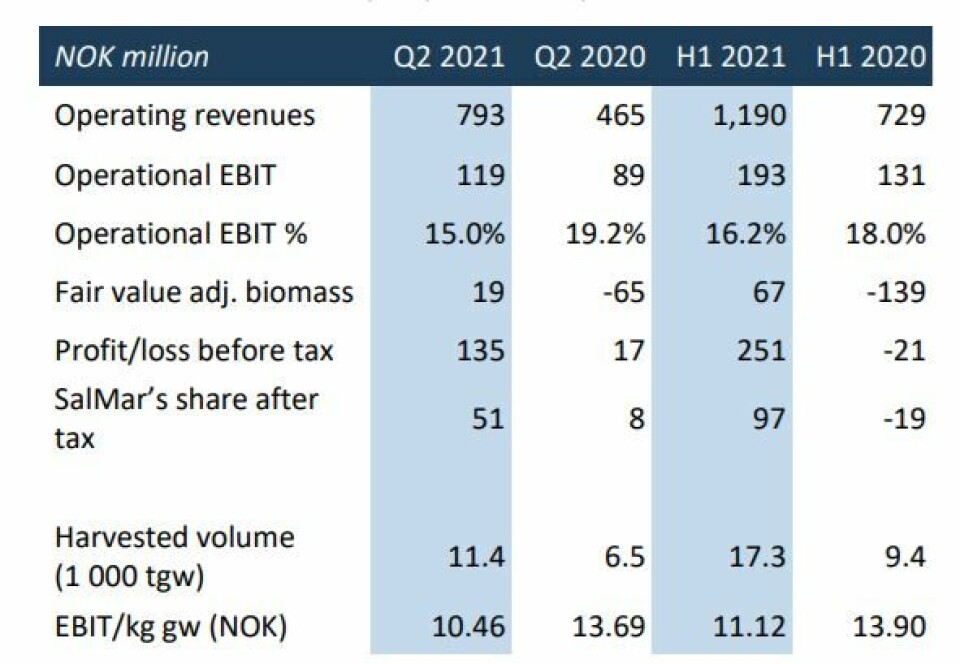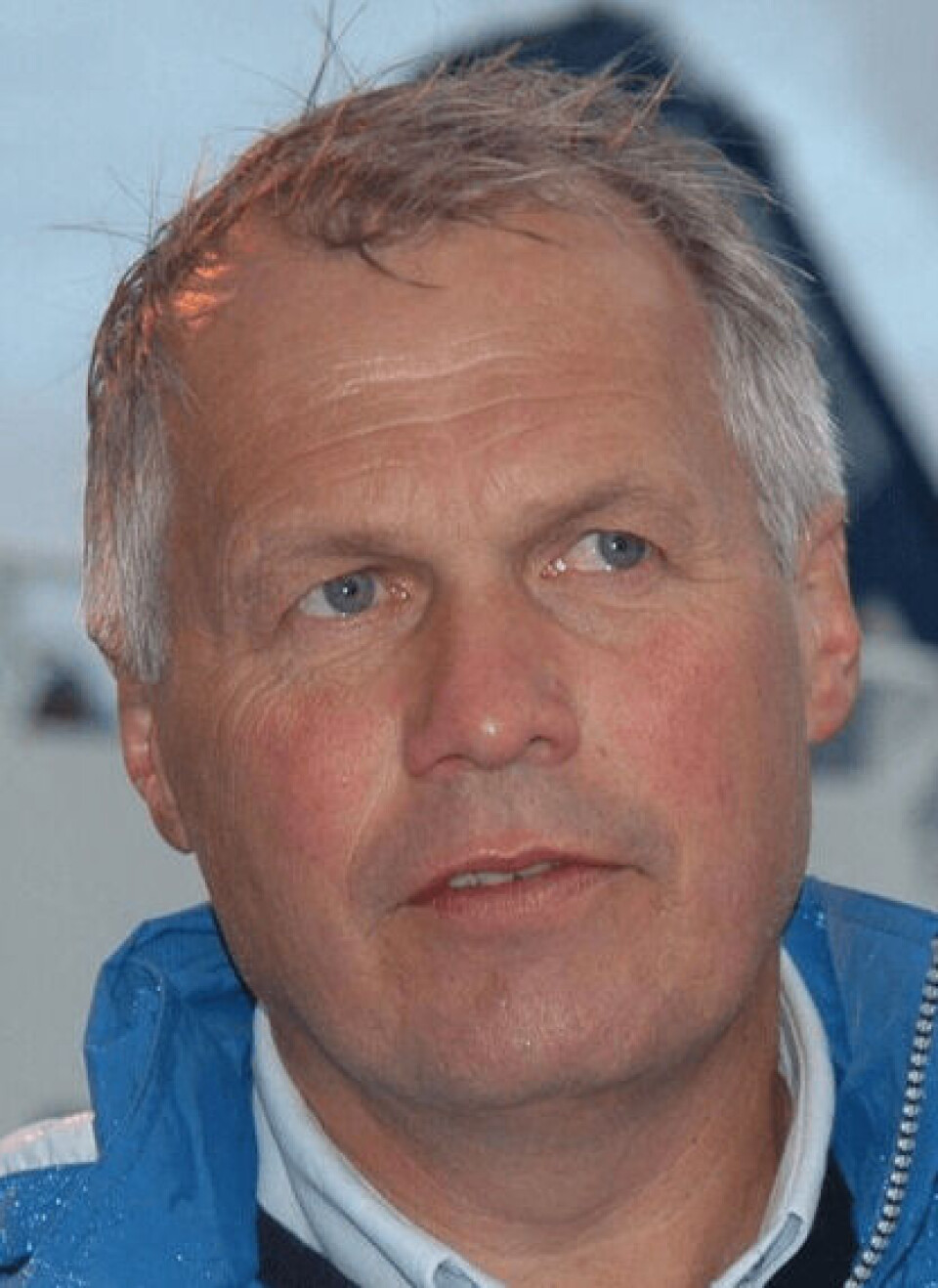
Shetland costs lower Q2 EBIT/kg for Scottish Sea Farms
Higher costs for fish grown in Shetland reduced Scottish Sea Farms’ year-on-year EBIT per kilo in the second quarter of this year, despite a record Q2 harvest volume and a pre-tax profit of NOK 135* (£11.2m), co-owner SalMar said today.
SSF generated gross operating revenues of NOK 793 million (£65.5m) in Q2 2021, compared with NOK 465 million in the same period last year due to an increased harvest volume of 11,378 gutted weight tonnes (Q2 2020: 6,529 gwt).
However, EBIT per kilo fell from NOK 13.69 in Q2 2020 to NOK 10.46.

Status is good
“The year-on-year reduction is attributable to higher costs at harvest for fish farmed in Shetland,” said SalMar in its Q2 and H1 2021 report published today.
“The status of the standing biomass in all regions is good and costs are expected to be lower in the third quarter 2021,” added SalMar, which shares 50/50 ownership of SSF with fellow Norwegian salmon farmer Lerøy.
“The company still expects to harvest 36,000 tonnes in 2021 as a whole.”

Fixed-price contracts
In the Q2 report, SalMar chief executive Gustav Witzøe blamed an over-commitment to fixed-price contracts for weaker-than-expected results.
SalMar made operational EBIT of NOK 661m in Q2, down from NOK 882m in the same period the year before. Harvest volumes in Norway and Iceland totalled 36,600 gutted weight tonnes (Q2 2020: 40,900 gwt).
“At the beginning of the year, we unfortunately had a darker view of the market and the price of salmon, which has proven to be the case,” said Witzøe. “The fact that we actually underestimated the salmon, and the market, is the main reason why we today – overall – do not deliver a good enough result.
“On the positive side, the development recently has shown us how strong the salmon market is and we are optimistic in relation to continued strong market development going forward.”
Stable biology
SalMar said both Fish Farming Central Norway and Fish Farming Northern Norway continue to deliver good results, driven by stable biological performance and good price achievement.
It added that its subsidiary, Icelandic Salmon, continues its positive trend from the previous quarter, with robust underlying operations, improved biological performance and good price achievement.
SalMar expects to harvest 163,000 tonnes in Norway and 14,000 tonnes in Iceland in 2021 as a whole.
*SalMar’s figures are different to those included in Lerøy’s Q2 report last week.






















































